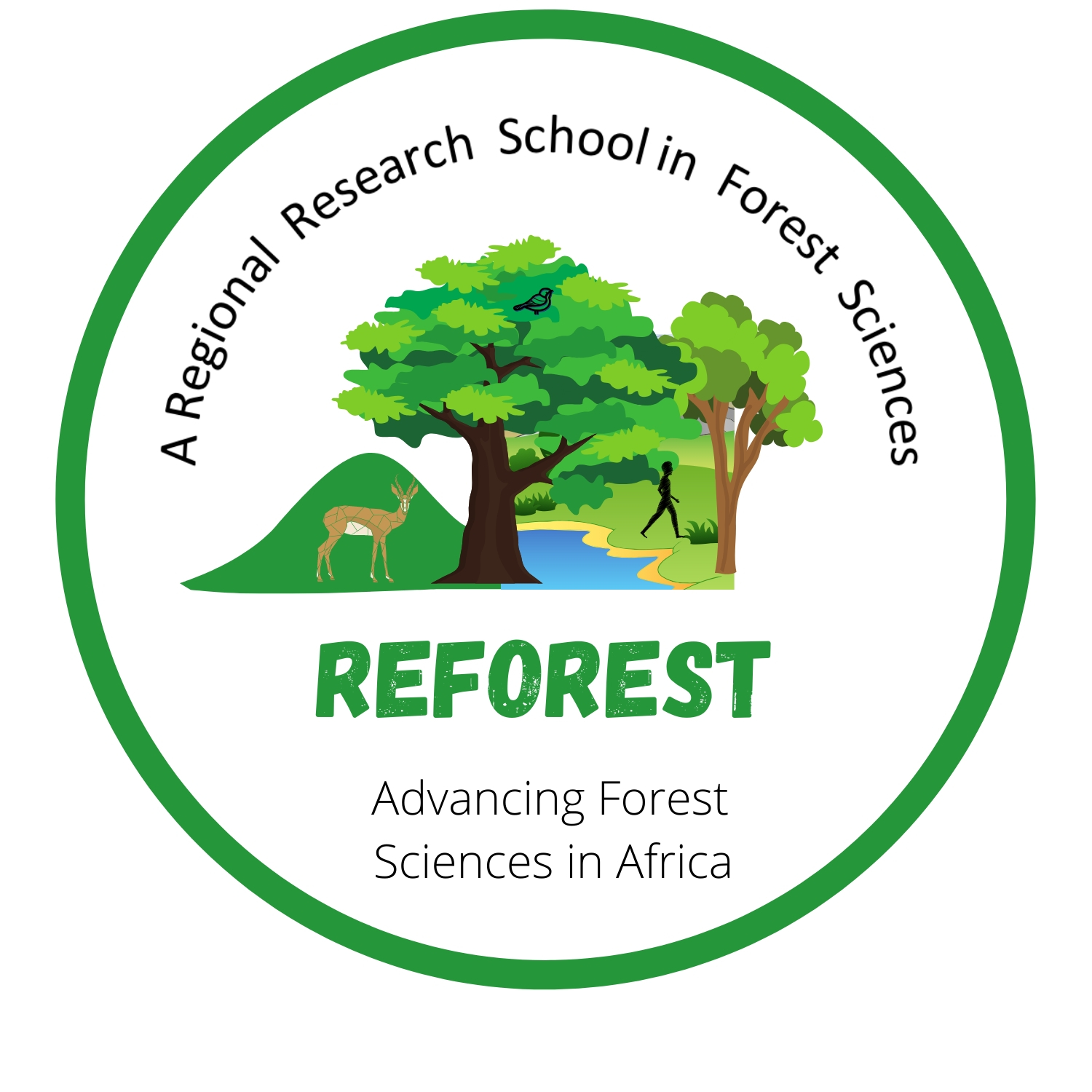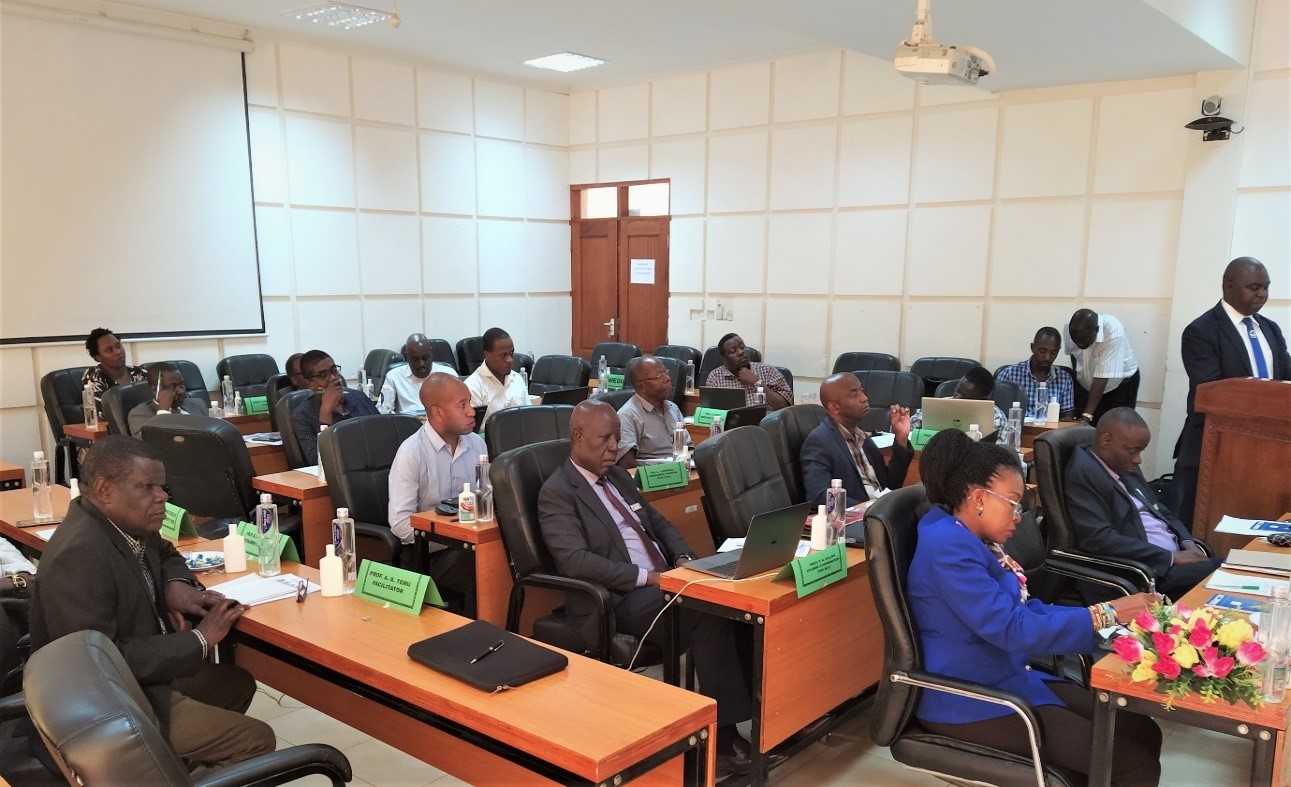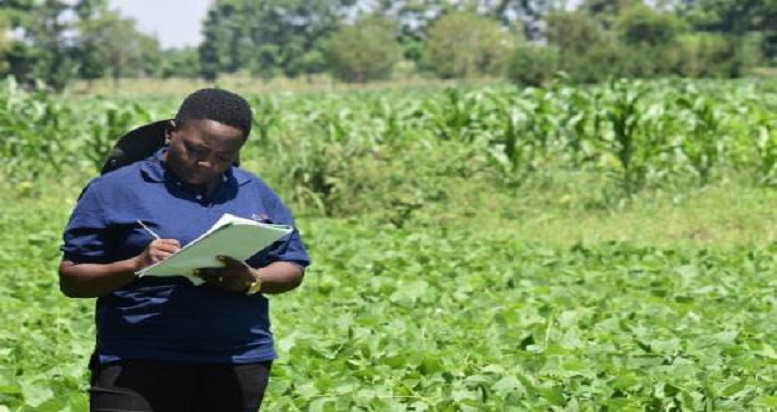In academia, refereed seminars are a cornerstone for PhD students, representing pivotal milestones in their scholarly pursuits. These events are not merely a platform for presentation but serve as a rigorous evaluation of their research progress and findings. The prestigious Regional Research School in Forest Sciences (REFOREST) Programme organized a series of such seminars, which took place on June 13-14 and June 24-25, 2024.
The REFOREST Programme, is a collaborative initiative,that brings together 19 PhD candidates from five regional countries: Rwanda, Uganda, Mozambique, Ethiopia, and Tanzania. The REROREST program fosters an environment of intellectual exchange and collective growth in forest sciences. Over these four days, the participating students showcased their research, to an audience of experienced educators in forest Sciences. They engaged in critical discussions essential for refining their work and advancing their academic careers. These seminars were more than just academic rituals; they are a testament to the rigorous standards and collaborative spirit that drive the REFOREST Program. The presentations highlighted cutting-edge research addressing pressing issues in forest sciences, from biodiversity conservation and climate change mitigation to sustainable forest management practices. Each presentation was met with constructive feedback aimed at honing the researchers’ methodologies and enhancing the impact of their studies.
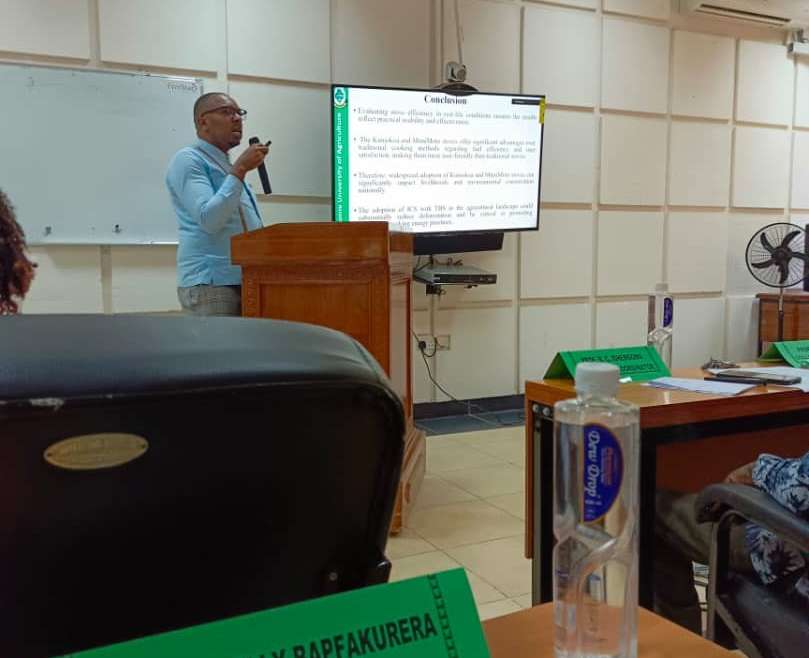
Among the exciting presentations was my research, which aims to contribute to sustainable fuelwood supply by evaluating tree-based systems (TBS) and their roles in mitigating forest degradation. In this study, I identified various TBS, such as boundary plantings, mixed cropping, live fences, and woodlots. These systems integrate fast-growing, short-rotation coppices, crucial for sustainable fuelwood supply.
Additionally, I assessed the efficiency and household appreciation of improved cooking stoves (ICS) like Kuniokoa and MimiMoto compared to traditional stoves. These stoves significantly reduce fuelwood consumption and improve cooking efficiency. These findings underscore the potential of TBS and ICS in promoting sustainable energy practices and reducing forest degradation.
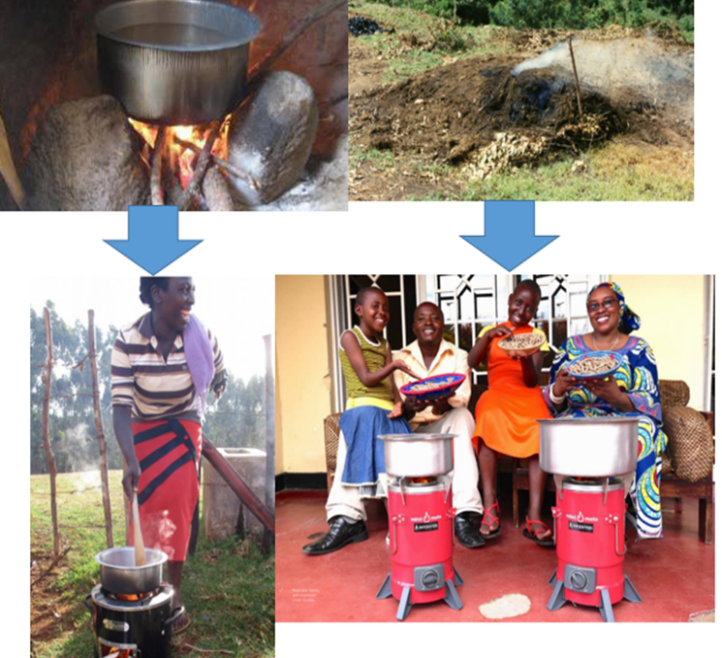
I felt excitement and nerves as I stood before an audience of experts, peers, and industry professionals. The atmosphere in the seminar room was charged with anticipation. Presenting his research findings, he carefully detailed his methodology, the significance of his results, and the broader implications for sustainable fuelwood management in Rwanda. The feedback I received was invaluable, providing new perspectives and constructive criticism that would help refine his work.
During the Q&A sessions, I engaged with the audience, addressing questions about the practical applications of his research and the potential for scaling up his findings. I found these interactions particularly enriching, as they challenged me to think more deeply about the broader context of his work and its impact on policy and practice.
In conclusion, the participation of PhD students from diverse regional backgrounds enriched the seminars, bringing varied perspectives and fostering a holistic understanding of forest sciences. In essence, these refereed seminars marked significant academic milestones for the PhD students and underscored the importance of regional collaboration in advancing forest sciences. The REFOREST Program continues to play a vital role in nurturing the next generation of forest scientists, equipping them with the skills and knowledge necessary to tackle the multifaceted issues of our time.
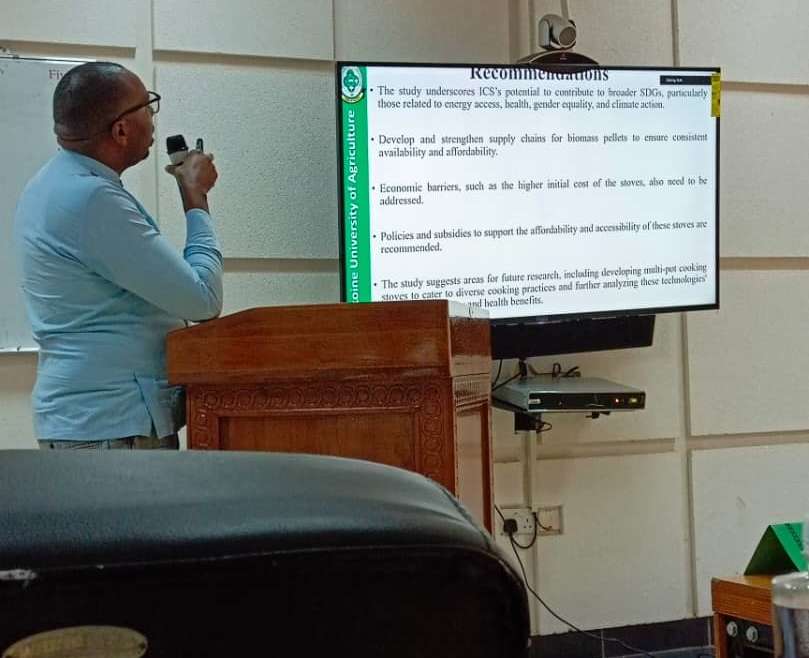
Reflecting on my journey, I thank my supervisors, Dr. Charles J. Kilawe, Prof. Gert Nyberg, and Prof. Jean Nduwamungu, for their guidance and support. The seminars facilitated by the REFOREST Program and the postgraduate committee have been instrumental in advancing my research and professional growth. My work not only contributes to the academic community but also provides practical solutions to pressing environmental challenges in Rwanda.
